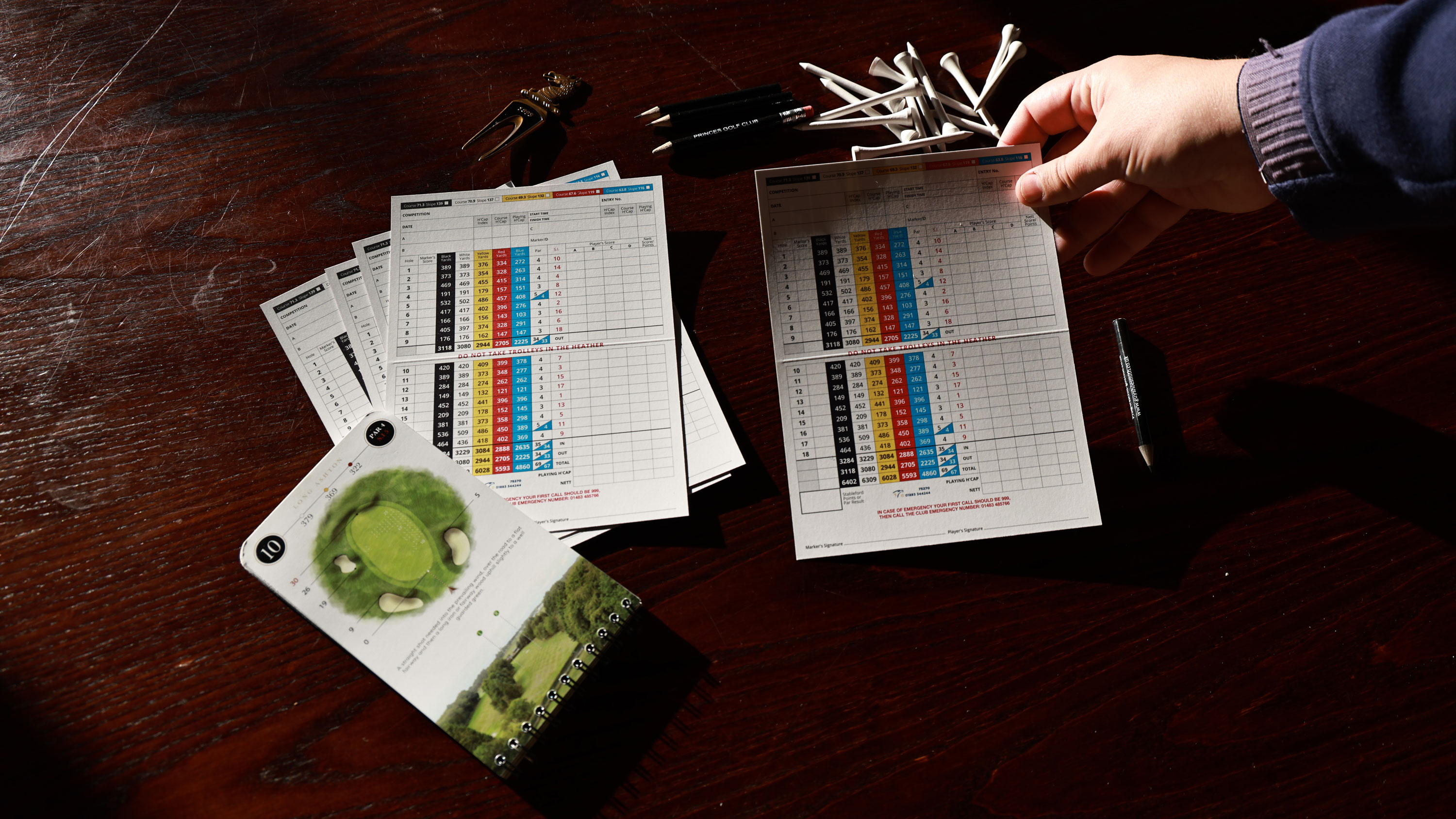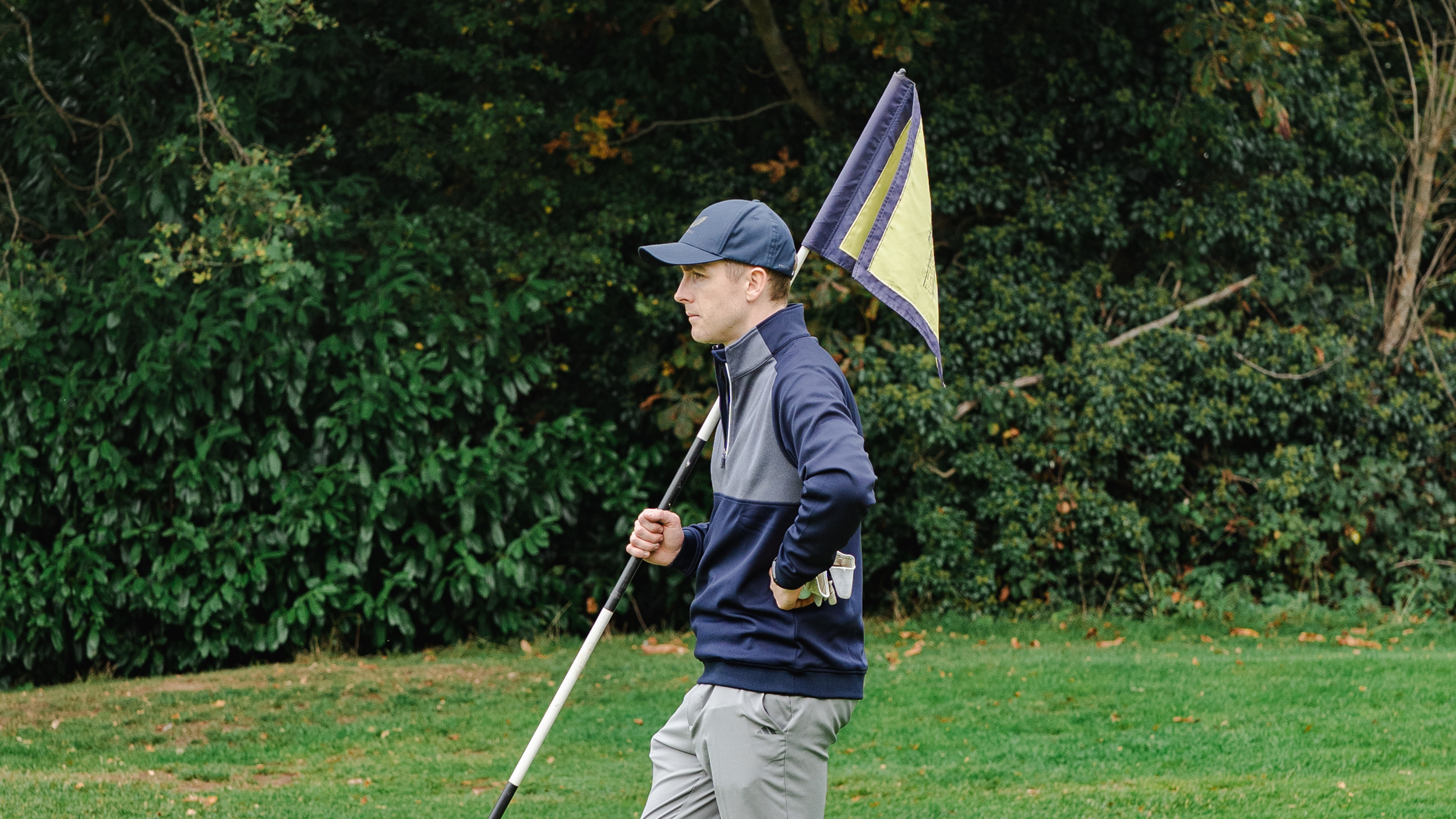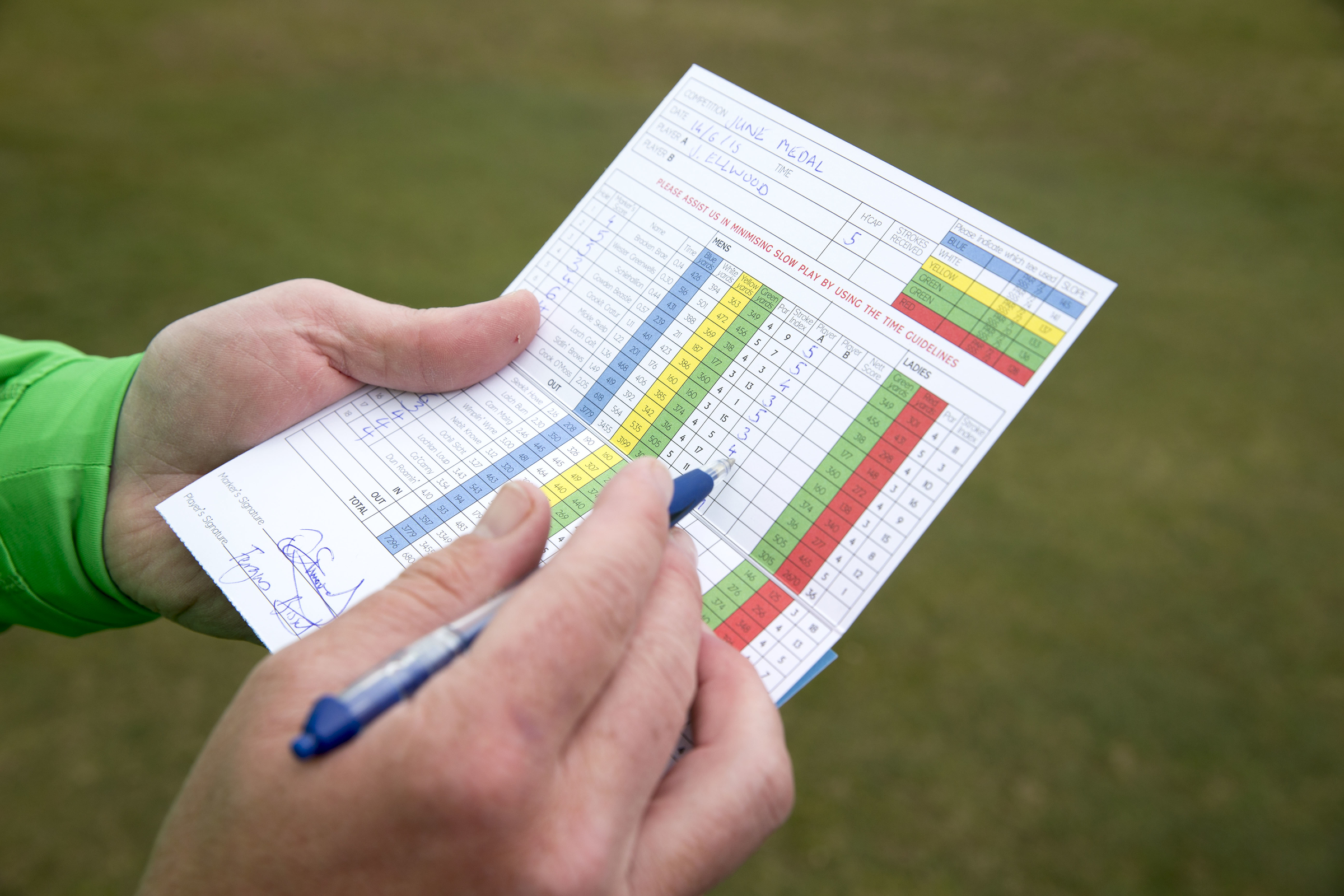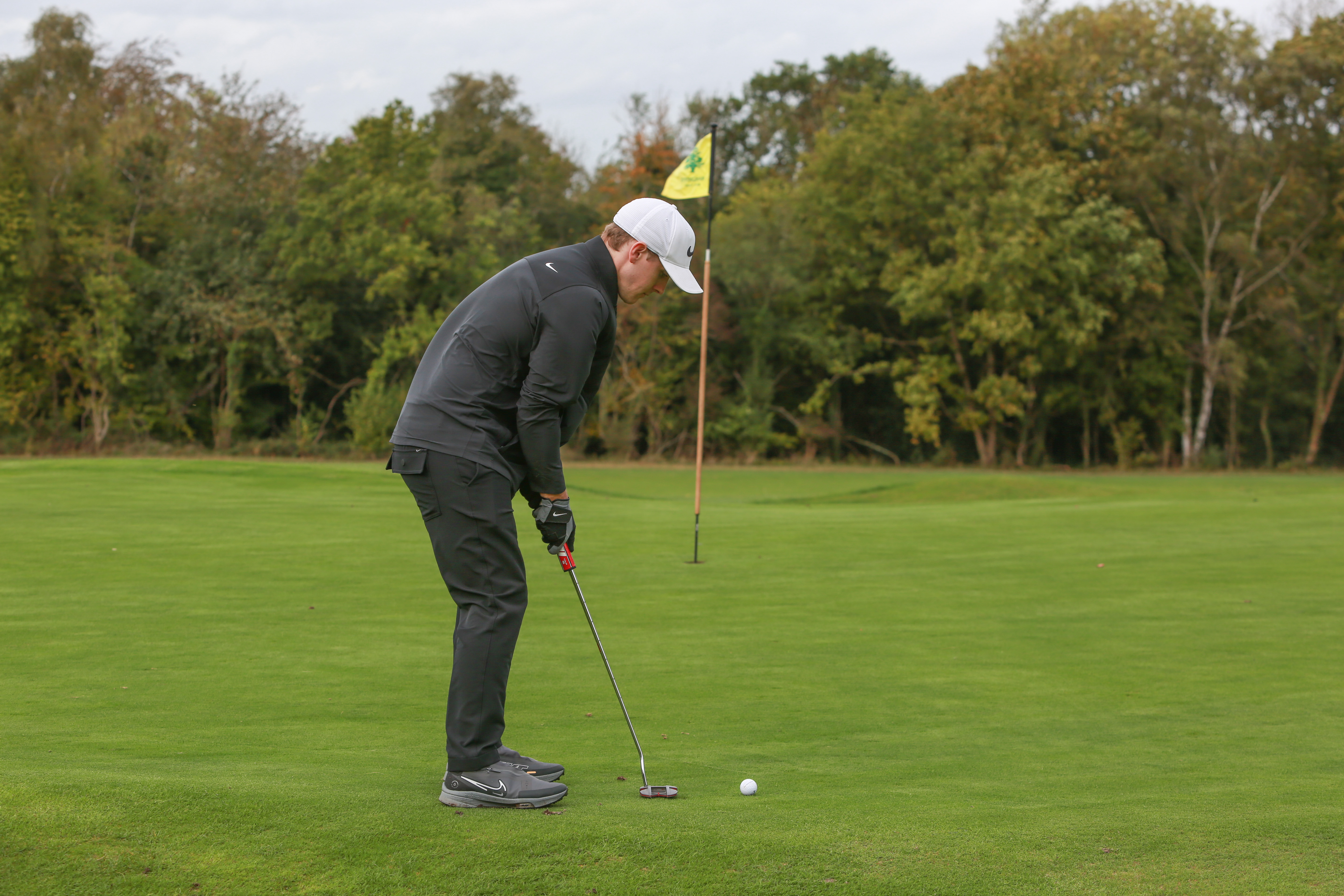I Shot My Best-Ever Round... But It Couldn't Have Been Worse For My Game
Golf Monthly's Jonny Leighfield saw his handicap drop considerably following his best-ever round, but here's why his lowest-ever index was really unhelpful


I almost broke 80 for the first (and only) time in my life last year. The reason this is highly impressive for me is that, at the time, I could probably count on two hands how many times I'd broken 90 in my life and, also, my handicap was 21.5. The following day, it was 17.7.
Rather than take shots at the World Handicap System - which has been through enough over the past few days, weeks, months and years - I just want to discuss how one fluke of a round had a considerably negative knock-on effect.
After countless outings involving simply trying to end 18 holes with a two-digit score, new clubs and a couple of other tweaks were starting to help me look ahead rather than behind.
With absolutely no expectations aside from simply trying not to embarrass myself in front of my talented colleague Matt Cradock - who is off near scratch - plus his charismatic South African friend Wes Bartlett, I actually began well and was one-under through two holes.
However, the bubble was immediately burst via seven dropped shots in three holes. Welcome to my world.

Having recalibrated and made the turn at a respectable nine-over, what happened next was what I like to describe as nothing short of a minor miracle. I started playing well.
Four pars in succession made way for a second birdie of the round! As far as I can remember, that remains the only time I've ever managed two gains over the course of one day.
Subscribe to the Golf Monthly newsletter to stay up to date with all the latest tour news, equipment news, reviews, head-to-heads and buyer’s guides from our team of experienced experts.
Apparently conscious that a sub-80 score was within reach at eight-over through 14 holes on the par-71 course, two inevitable bogeys followed in the final four holes and I signed for a sublime 81 (as far as I was concerned).
A one-over back nine will likely remain the finest set of golf I'll ever play, and I was simply delighted with this once-in-a-lifetime run - helped in no small part by Matt's expert guidance around his home course.
However, reality soon dawned on me when, my handicap dropped almost FOUR FULL STROKES the next day.

With expectation levels soaring to new (and quite frankly highly unrealistic) heights, I considered the possibility that I was now capable of shooting in the low-80s regularly and that maybe, just maybe, a score in the 70s might not be too far away.
A week later, I carded a 26-over-par score of 98.
Having fully crash-landed my expectations, I didn't play for about six weeks.
In reality, I hadn't thrown my toys out of the pram, it just wasn't possible for me to play during that time. But, the truth is, I really wasn't that disappointed.

Nevertheless, when I returned to the course, I wasn't at all sure what to expect. Funnily enough, I managed rounds of 84 and 83 right out of the gate.
By this stage, I'd achieved my initial goal of dipping below an 18 handicap and was sub-17. Yet, despite eight subsequent scores of between 91 and 97, my handicap never even considered rising above 16.5.
Again, I'm not going to bash the fine WHS (today). But, during this stretch of consistent play, all I could think was 'I'm clearly not a 16-handicapper! I just enjoyed a couple of rare ultra-positive days!'
Not only was it frustrating, I was constantly starting rounds looking at the number of shots I would have to play with and feeling a sense of dread, like I was already up against it. Clearly I'd improved for a bit, but the early days of very occasionally shooting in the low-80s had spooked me.
Take on our crossword
Gone were the days where I could bogey every hole and throw in the odd double or triple as well - scores I most likely to post. No, I would now have to hit the ground running.
Then, when I inevitably double-bogeyed the first, I would feel tense and struggle to navigate out of the slump. Not because I didn't want to, but I simply didn't have the game to do it.
As someone who believes you should submit a card every time you play, the number next to my name became something of an albatross around my neck early on.
By the time I'd rediscovered some kind of consistent form again, it was almost a year after the heady days of the 81.

I felt like I'd lost almost a year of attempting to improve steadily because the progress - as far as my handicap was concerned - had happened far too quickly.
I went through a stage where I had absolutely no idea what was going to happen. For example, over four consecutive rounds this summer, I shot 89, 95, 103 and then 88. It wasn't just the scores, either, it was the fact individual areas of my game were doing fantastic Jekyll and Hyde impressions.
Shortly after the latter score, I realized the standout 81 was soon to drop off. But, before that had chance to occur, a couple of rounds in the mid-to-high 80s saw my handicap drop to 15.5.
At that point, I stopped caring what my handicap said and I was beginning to understand why there is such widespread frustration with the current system.

Instead, I thought to myself: 'Just go out and play, whatever happens, happens. You're not defined by your handicap score. As long as you enjoy it, that's all that matters.'
While I certainly take some responsibility over paying too much attention to my handicap index during the wobbly period, I can't help but feel my tale has to highlight a key deficiency in the current system.
Surely one alternative option could be taking the average figure from your past 20 scores rather than looking at your eight best. Should that idea have been a reality, maybe I would have enjoyed a fighting chance at breaking 80 with the freedom of a few 103s as insurance?
As it is, my handicap index is set to rise back towards a comfortable 18 once again soon and my chances of breaking 80 for the first time continue to be a distant dream.

Jonny Leighfield is our Staff News Writer who joined Golf Monthly just in time for the 2023 Solheim Cup and Ryder Cup. He graduated from the University of Brighton with a degree in Sport Journalism in 2017 and spent almost five years as the sole sports reporter at his local newspaper. During his time with Golf Monthly, Jonny has interviewed several stars of the game, including Robert MacIntyre, Ian Poulter, Lee Westwood, and Joaquin Niemann. An improving golfer himself, Jonny enjoys learning as much about the game as he can and recently reached his Handicap goal of 18 for the first time.
You must confirm your public display name before commenting
Please logout and then login again, you will then be prompted to enter your display name.